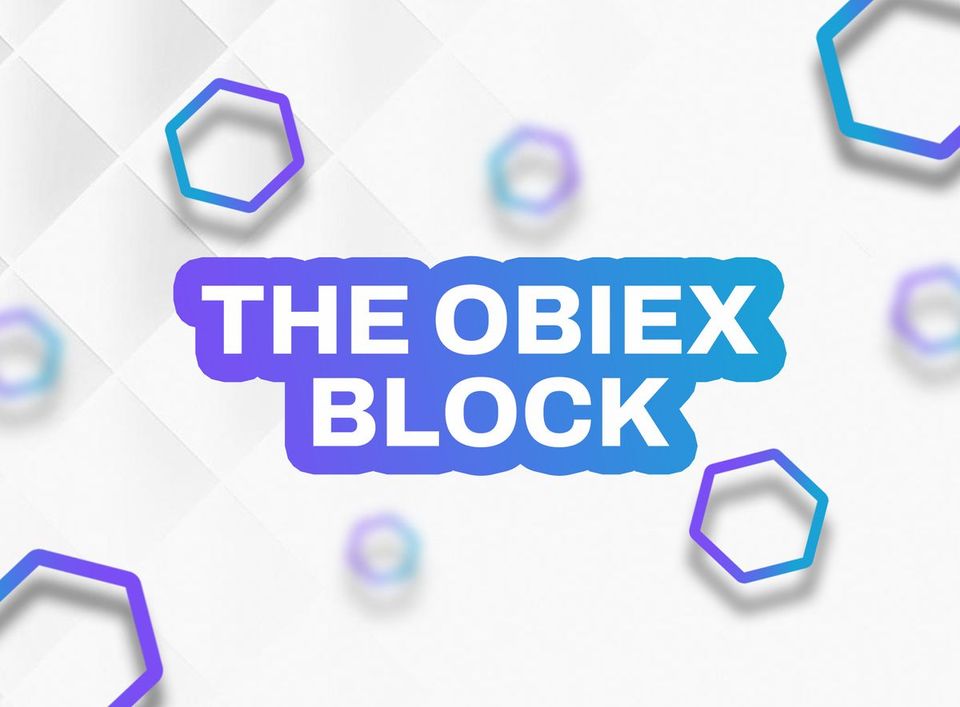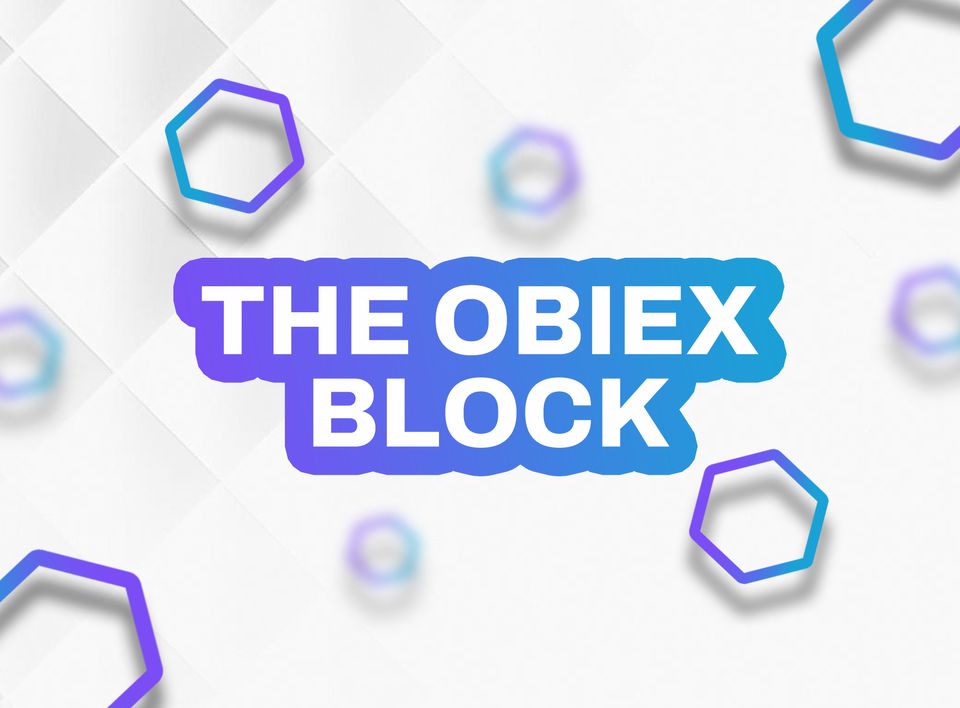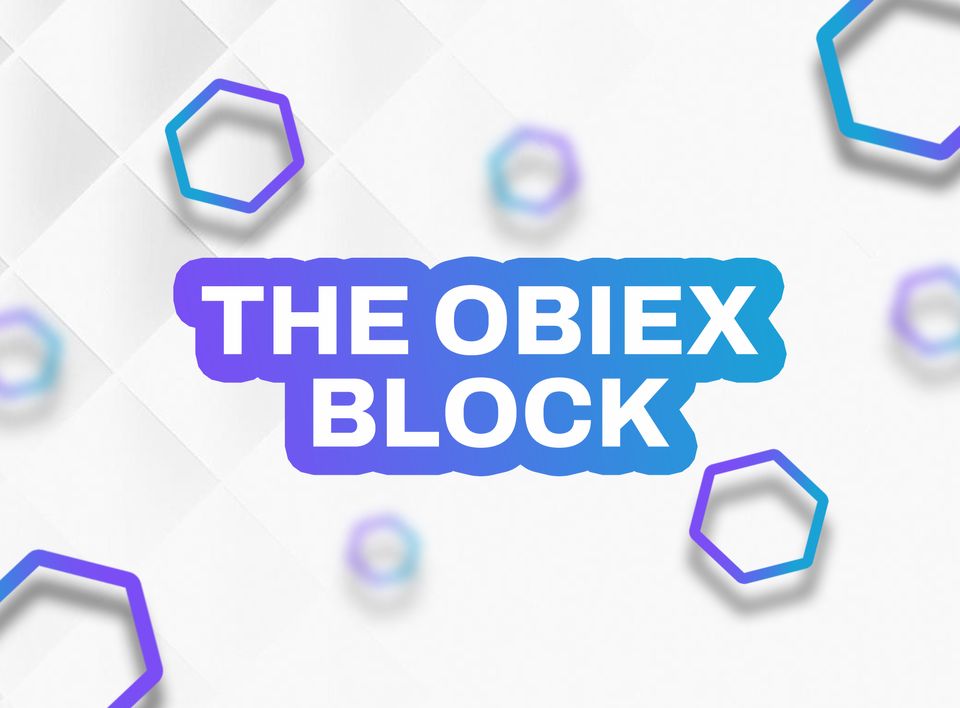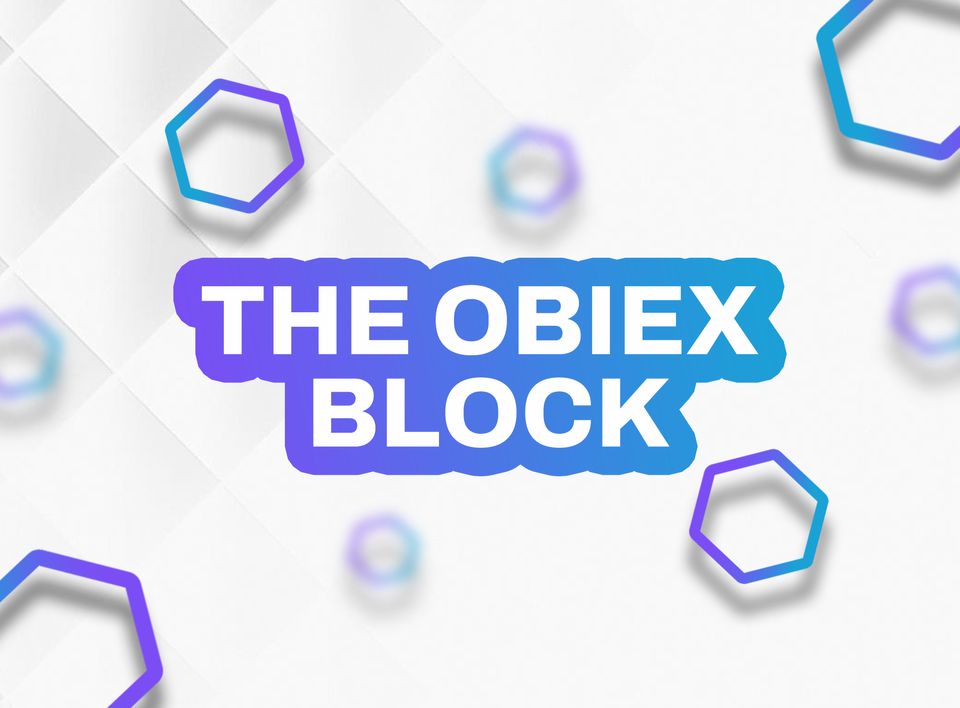I Fall In Love With Every Product I Design
Nwamaka Akah is a product designer and illustrator. She spoke to us about having her crypto and NFTs stolen and the rise of AI tools.
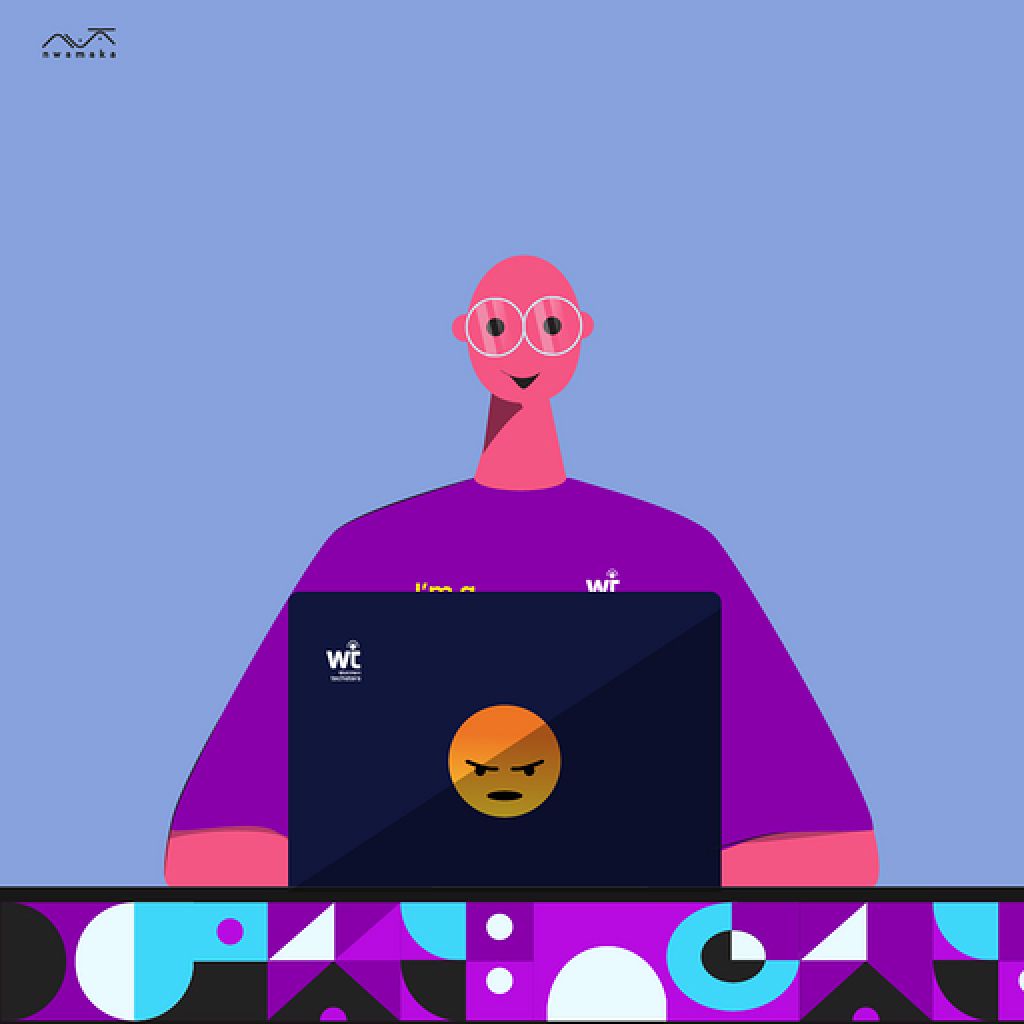
Nwamaka Akah is a product designer and illustrator. For our first The Obiex Block interview, she spoke to us about crypto product design, having her crypto and Nfts stolen, and the rise of AI tools.
What led you to product design? Let me use myself as an example. Before I settled into marketing, I had tried my hands at graphic design, learning javascript, SQL & python for programming, product management, social media management, and event management. After all that, I found content marketing was what worked for me, so how did you realise product design was for you?
The first time I came across the concept of design was at University while studying Mass Communication. I frankly hated the course because I wanted to study Medicine. But unfortunately, I failed physics and chemistry so badly in science class.
I was using my science textbooks to draw instead of paying attention in class, so I decided to switch to art. When I left sciences, I was feeling lost and trying to figure out what to study at University.
I actually chose Mass Communication on the day I bought my JAMB form. I searched the brochure for any course that didn't require Maths and picked the first one I saw. Now that I think of it, I would have chosen psychology if I had been better informed.
Same here. I wanted to study psychology as well. I think psychology is very fascinating, but I digress. Please continue.
Oh yes. I think psychology is fascinating, and it's interesting I use it now for design. Anyway, I chose Mass Communication, and as God would have it, I got into University. It was so tough for me. It was terrible. But one thing that helped me was I liked to write, so it helped me scale through and come out with a good grade.
In my 3rd year, we were introduced to graphic design, and that was the first time I ever felt good in a class since I started University. I knew from the onset I wouldn't be a journalist, and I didn't know what the future held for me, so when I got into the graphics thing, I picked up interest. However, I didn't have a laptop for a long while, which kept me from learning design.
When I started serving as a Corper, I met someone who taught me how to use my phone to design. As God would have it, I got a laptop the next month.
Shout out to God!
Yes oh. I started with photo manipulation and all that, but I didn't know how to make money from it yet; I was just vibing. I had always been a creative child, drawing stuff off and on. Then in 2021, my friend sent me an application, and frankly, I didn't want to go forward with it because they were asking so many soul-searching questions.
Haha. You were probably thinking, "Guy, I just want to draw; what's all this?".
I swear! I almost chickened out of the application. Also, I hadn't had a lot of good luck that year. The jobs I applied for weren't coming. I thought this application would also be another waste of time. Fortunately, I was chosen and got into the fellowship, where I learned to do product design. I was also lucky to be learning illustration alongside.
A double threat. I love it.
Yeah, I mean, maybe. Lol. I was lucky again to get a job 4 months after I finished the fellowship. So that's the long story of what led me here.
What a journey. Is this your first time working with a crypto product?
Yes.
Have you worked with other tech/finance products before?
Yeah, before joining Obiex, I worked on a bookkeeping product/app that helps small businesses.
What's the difference between the product design you were doing for the bookkeeping app and what you are doing for obiex? I know they are 2 different apps, but process-wise, are there differences or similarities?
Well, the processes are basically the same. They're both in fintech, more or less. It's just when it comes to competitive research and other considerations, I have to do more of it for Obiex products.
In building Obiex products, you must put in extra effort in the design process because any product involving money is stressful. By stress, I mean working to ensure your app/product is always trustworthy and easy to use.
When it comes to crypto products, it's double stress because market volatility doesn't allow you to rest. We have to do more education, from our end and customer-wise.
How much does simplicity play a part in designing an app that deals with money directly? Because if I'm putting my money in an app, I don't want to stress myself to figure out how it works; I just want to open it, see my money and see what I can do with it.
Absolutely yes. In fact, I think it's one of the most important things in designing a fintech product. If someone opens the Obiex app and they don't know what will happen if they deposit money, they won't put their money in.
So having it as simple as possible is key. We also have to consider that the market is still emerging, and crypto tech education isn't so popular in Nigeria/Africa. We try to ensure that even first-time crypto traders or crypto-curious people can trust us with their time and money. Hence, everything has to be very, very simple.
Speaking of cryptocurrency, what's your view on it?
I'm fascinated by it; it has a lot of potential. There was this period when I tried to understand web3 and cryptography beyond finance. From my research, I've seen that it can potentially transform many industries like education and healthcare. I think the fact that crypto is unpredictable is also exciting, but that might just be the adrenaline.
It's definitely the adrenaline.
I remember when I bought crypto for the first time. I was watching my money increase and decrease. Even though I was losing money at some point, it still felt exciting. Like in 5 seconds, I can gain $10, and in 2 seconds, I can lose $20.
Also, I am all for breaking oppressive systems; we all know traditional finance has its share of oppressive structures. But the sad thing is that the same gatekeeping in finance is now happening in crypto. I think it's a human thing anyway. No matter what we build, gatekeeping and oppression will find a way there. Also, do you know I've lost money in crypto?
How??
It was when I was into NFTs. Someone hacked my account and stole my money. They even stole my art. It was so weird because the person had stolen my money for 3 days before I realised it.
I've noticed that in the NFT space. A lot of wallet hacking and digital art theft. I'm so sorry. After that, did you wash your hand off crypto, or are you still holding crypto?
Yeah, I'm holding ARB, BNB, SPACEID, SINGULARITYNET, ETH, AVALANCHE, and SOL.
Oh wow, that's a healthy portfolio. What made you buy those coins?
I watched one youtube video.
ONLY ONE YOUTUBE VIDEO??
Hahahaha. Hold on, I can explain. The logic the guy in the video made convinced me. He showed existing coins that had fallen badly in price, like Solana, and he said by the time they regained their value, they would be profitable. So I bought one of his recommended coins - Singularitynet -, and it made me a lot of money. I made 2x of what I invested in a month, so of course, I bought more. Then I returned to the video, wrote down the coins he recommended and bought nearly all of them.
Fair enough. Let's get a little deeper into crypto product design. Have you had a design session where you felt very rewarded or an Obiex feature/product you worked on where you felt 'wow, I designed something good?'
Hmm. I think it was when we redesigned the Obiex web app. Seeing the before and after and seeing the work put into it. Maybe I'm just a hopeless romantic, but I fall in love with every product I design.
I think it probably makes you a better designer because when you love something, you'll put in the work. There's always a significant difference between products built with love and those built for building sake.
Yes yes. When I worked on the web app, it was a very fulfilling experience for me. I got the opportunity to improve many things and work with amazing people.
I love that for you. So when you're in a design session, what do you tend to focus on- aesthetics or functionality?
Well. I always put functionality first, and so do the rest of the Obiex product design team. However, I still think aesthetics are very important, so we make sure it's balanced out.
Sometimes we have to choose between something looking better than it is or working better than it is. We always choose the latter but still try to make it look good. I'm obsessed with user experience. I love designing products which are accessible and easy to use.
Where do you get inspiration for your product design, specifically when designing an Obiex product?
Not to sound too much like a poet, but I get my inspiration from everywhere.
That is absolutely not poetic at all.
Hahaha.
That is such a detailed answer.
Hahaha. Don't mind me. But seriously, since I started product design, I have paid more attention to how things work. I'm constantly figuring out why physical and digital products are shaped or designed the way they are. I also try my best to observe how I react to certain products I use, and it helps my design a lot.
What do you do when you're not designing?
I love taking strolls and taking pictures, drawing, and writing. I just lose myself in art and nature.
Thank you Nwamaka for having this conversation. Before you go, here's one final question - what's your view on AI and the possibility of it taking away jobs and replacing artists/designers?
Even before AI became popular, I had tried to research it, but it was like understanding crypto and space tech for me; my brain just wasn't getting it. Still, depending on who uses and controls it, I think it could be a good or evil tool. And I think right now, the people in control are more likely to abuse the power of AI. The ethics surrounding it are also shaky, unlike other tech, for instance, where there are set laws and regulations.
AI is meant to enhance us, not replace us, and if we approach it as something that will replace us, that's what will happen. All it takes is for one person to figure it out.
I have a friend who studies AI, and he says that their professors tell them AI is a black box, and nobody in AI knows what they're exactly doing. They're just doing trial and error right now. That's why most people are pushing against it because there isn't enough understanding of how it works or the ethics of its use, and companies are just pushing it on everyone to use regardless without restraint.
Personally, I've used AI, but what it produces has that lifeless quality, so you still have to do significant work to make it at least above average standard.
Those are solid points you've brought up. I guess we just have to keep doing the trial and error because that's the foundation of innovation. And, like it or not, AI is here to stay.
I just want to say something in case the AI overlords are listening.
What do you want to say?
I'm rooting for AI; please, I am on their side.
Hahaha, I hope they remember this.
I hope so too. I can't fight.

